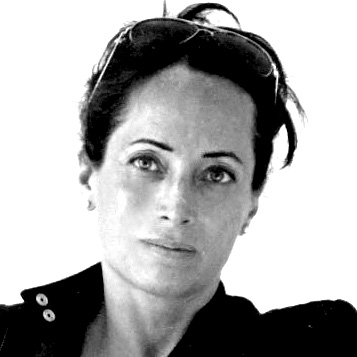“It can be very scary to stand up to bullies.”
—Georgina Chapman, in her 2012 anti-bullying public-service announcement
The Other Woman
Anybody in the vicinity of Mr. and Mrs. Harvey Weinstein at the 2003 Oscars knew his wife, Eve, was in a foul mood. By then, Harvey’s interest in Georgina Chapman was a loosely held secret. Nobody is entirely sure how they met. “He’s friends with her mom” was how people were instructed to explain sightings of Harvey with the Ingres-shouldered ex-model he called “George.”


